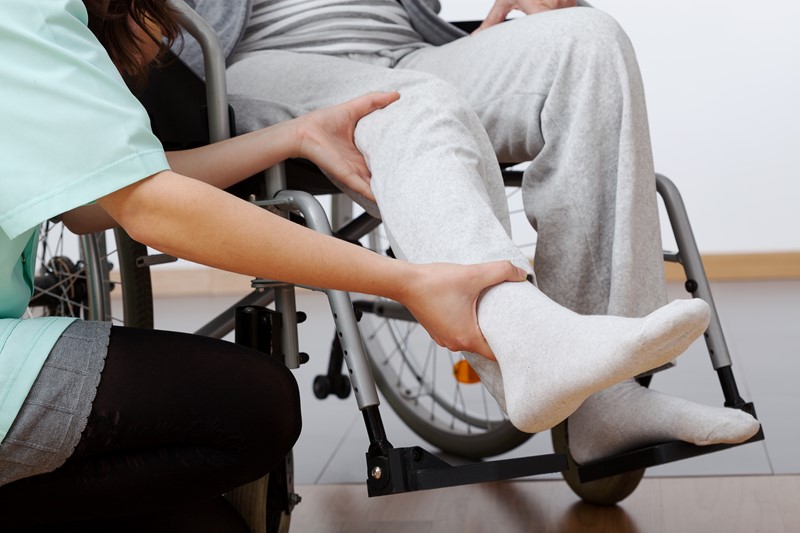The UK has made a significant investment in shared care records. In England, local health and care record exemplar projects were established in 2018, to build on the success of early movers like Connecting Care in Bristol.
Two years later, integrated care systems were given a target to have a ‘basic’ shared care record in place by September last year. In Scotland, a digital health and social care strategy that also came out in 2018, prompted health boards to roll-out portals and integrated digital care records.
While Northern Ireland developed the Northern Ireland Electronic Care Record to underpin information sharing across the country. However, most of these projects now face a challenge. How do you grow a shared care record while also maturing it to support the new world of population health management?
The global shift to population health management
That was the challenge addressed by Orion Health’s UK and Ireland Customer Conference 2022, which was held in Bristol in September after a three-year hiatus due to the Covid-19 pandemic. Brad Porter, who took over as chief executive from founder Ian McCrae this summer, told the event it is not a challenge that the UK is facing alone.
“Around the world, countries are releasing data strategies that focus on the need to make healthcare more integrated and more accessible to those who need it most,” he said. “These strategies also recognise the need for digital to address the waiting lists caused by Covid, and to meet the demands of Gen Y and Gen Z, who have grown up with digital.”
In these strategies, he said, population health means: putting the patient at the centre of their care, empowering clinicians by streamlining pathways, and “capturing and analysing data for the entire population, so we can identify the care needed by the individual, before they need it.”
Three pillars to build on
While this sounds – and is – complex, OrionCC22 heard that NHS England has set down three, basic pillars for population health management: infrastructure, intelligence and intervention; and that Orion Health has mapped its products to them.
On the infrastructure point, the company’s approach is underpinned by the Amadeus platform, which integrates data from multiple IT systems, and makes it available to products that include the shared care record, the Coordinate suite of collaboration tools and care pathways, and the Engage patient portal.
From the outset, the company has been committed to using open standards like HL7 FHIR to support that initial integration into Amadeus. And Nicole Allan, global solutions director, told the conference that it has extended this approach to make it easier for customers to “plug and play” their own integrations.
Orion Health has created a suite of APIs, an API framework, and a list of ‘adaptors’ or data providers to make this possible. So, Allan explained, while early movers like Connecting Care spent a lot of time building point to point integrations, “newer shared care records will have much more of what they need out of the box.”
Pillar one: infrastructure
At the same time, a lot of work has been done to define the content of a shared care record. Oliver Lake, deputy chief executive of the Professional Records Standards Body, explained it has been working on a Core Information Standard to define the information that could potentially be shared between sites, systems and professionals.
In a significant piece of news, he announced that Orion Health has just become the first supplier to achieve conformance with the CIS. “This is a landmark for us,” Lake told OrionCC22. “There are more than 1,600 items in the standard and it has taken more than a year of meetings between Orion Health and ourselves to achieve this.
“Now, we want it to be the start of a movement that gets everybody thinking about how to implement standards correctly.” Tracey O’Brien, digital consultant at NHS South, Central and West, said the CIS would make a big difference to Connecting Care.
It has started to receive information from social care and to extend access to care homes, and to do this she said: “We had to map our terminology to social care and agree a local information standard.” Now the CIS is in place: “It will make that process a lot easier.”
Pillar two: intelligence
On the intelligence piece, Orion Health has an analytics solution, Discover, that sits alongside the shared care record and holds data that can be used to crunch administrative and clinical data.
Katharine Guthrie, stakeholder engagement and benefits manager at the Care and Health Information Exchange, told the conference that it has been using Discover to explore who is using the shared care record and why so its BAU team can better support users and work out how to get more people on board.
However, to support population health management, customers will need to use Discover to segment their populations into cohorts and design effective interventions for them.
Kevin Ross, research director, said it has been Orion Health’s mission from the outset to “capture data and to make sure it can be put to the right use at the right time.” The company has 250 data scientists working with customers to “understand their data and how it can be used to improve health and care.”
But, again, it has also been developing tools that customers can use themselves. These include a de-identification product and an algorithm hub that can be used to develop, store, and manage the algorithms that underpin segmentation and decision support tools.
Pillar three: intervention
Kira Levy, UK public sector head of healthcare at Amazon Web Services, said integrated care systems, like other accountable care systems around the world, needed to develop a solid data architecture to do this. One that is secure, scalable, and “isn’t limited to particular use cases.”
But, she stressed, the best data architecture, analysis and research is no use unless there is an intervention for clinicians to refer patients into. Levy also stressed that population health management interventions will only work if clinicians find the tools that support them easy to use.
Ben Wilson, product solution director, told the conference that Orion Health has been doing a lot of work in this area. For example, he said, the adoption of progressive web app technology means the shared care record can be scaled for use on a laptop, mobile or even smaller devices.
A standard framework design has been developed to bring a consistent look and feel to different use cases and to align with PRSB standards. While a lot of work has gone into helping clinicians to understand the data they are using, and to personalise their data choices.
Continuing the support for intervention theme, product solution director Bruce Horne showed delegates a new version of Orion Health’s Forms product. This makes it much easier to construct forms and to attach them to Collaborative Worklists, so they can drive new interventions and workflows.
Horne explained how this approach had enabled Orion Health to work with Connecting Care to support a Community Integrated Care Bureau in the third wave of the Covid-19 pandemic. In “just seven weeks”, a team was able to create a form for patients ready for discharge that could be shared into collaborative worklists used by three hubs organising onward care and by overall co-ordinator Sirona Care.
Tips for the journey
More developments are on the way. Chris Lucas, vice president clinical portals, said he was “really excited” about Smart Search, which uses natural language processing to help clinicians find information in the document tree, without having to “open and skim, open and skim.”
A pilot of Smart Search is underway at Southern Cross Healthcare in New Zealand. Southern Cross is the country’s largest, private provider of healthcare, and nursing director Carey Campbell came to Bristol to tell the conference about its ten-year journey to implement Clinical Workstation.
While this acute product is not used in the UK, her account of the challenges of running a successful implementation and go-live, and then expanding and evolving the use of an electronic patient record, struck a chord.
Campbell also had some great advice for ICSs that are still at the start of their shared care record journeys: embrace disruption, be bold and brave, “pick a good team… and then get out of its way”; remember “he tangata, he tangata, he tangata – or, the people the people the people”; become fluent in clinical and tech and act as an interpreter; and then “have fun… and more fun…”
The irony of population health management
At the end of the day, Anne O’Hanlon, product director, reminded the event that population health management is about more than products, or their implementation, or their use by clinicians. Critically, it has to be about patients and citizens.
Yet, she told OrionCC22, the evolution of accountable care and integrated care systems, the development of digital strategies and digital first approaches, and the introduction of new, patient facing technologies has led to a paradox. Across the world, there is “more fragmentation than ever.”
Indeed, O’Hanlon argued that healthcare and health tech globally needs to confront the “irony” that “just as systems are trying to put the patient at the centre, and using technology to do it, none of that joins up.”
To do that, she said, systems need to “rethink the process from end to end, from the patient perspective” – while recognising that patients will want different ways to interact with them, so their processes must work from those different starting points.
O’Hanlon also updated the conference on two products that Orion Health has developed to help. One is the Engage patient portal and the other is the Digital Front Door, which has been developed with a Canadian province’s healthcare system to give citizens access to news, advice, symptom checkers, and other consumer-facing health tools.
Seeing the way, delivering the vision
Expanding a shared care record while evolving it for population health management is challenging. One speaker described the road facing UK shared care records as “full of mud and potholes” while O’Hanlon’s presentation reminded everyone that if things get out of step the result is “one hot mess” for patients.
But Gary Birks, executive vice-president Europe, closed out the conference by stressing that Orion Health has the tools to smooth the road; and journeys are invigorating. “I think we are fortunate to be working in two of the most exciting industries on the planet: technology and healthcare,” he said. “Because we are making progress, and we do have an end point – which is a better system for clinicians, patients and citizens.”



